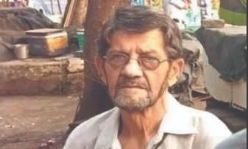Prof Sibaji Raha, Ashoke Mukherjee
Meheryar Hosang Engineer was born on December 20, 1940 in Guntur, the younger of two brothers in a Parsi family. His family moved to Kolkata (then Calcutta) when Meher was a few years (4 or 5) old. After the sudden accidental death of his father, Meher and his elder brother were brought up by their mother alone. Meher had all his education in Calcutta. He studied for his B.Sc. (Hons.) degree in Physics at St. Xavier’s College, his B.Tech. and M. Tech. degrees from the Institute of Radiophysics& Electronics, University of Calcutta and his Ph.D. from the same institute, under the supervision of Prof. B. R. Nag. He obtained his Ph. D. In 1967.
Meher moved to Pennsylvania State University in 1966, first as a Research Associate in Materials Science and then as an Assistant Professor in the Departments of Electrical Engineering and Physics. He moved to the City College of the City University of New York as an Assistant Professor of Physics in 1970. After spending two years there, he returned to India, joining TIFR as a Visiting Scientist. After two years there, he joined ONGC at Dehradun (and subsequently at Ahmedabad) where he worked in various capacities for a number of years. In the interim, he was also associated for some time with Harwell Laboratories in UK. Then finally, he moved to Bose Institute, Kolkata as a Professor of Physics in 1987 from where he retired in 2000.
After superannuation, he was reemployed at Bose Institute for two years, ultimately ending his stint in December 2002. He served as Acting Director of Bose Institute during 2000 – 2001.
He had been married to Sue Engineer, with whom he had two children, Mark and Renu. After Meher and Sue got divorced, she and the two children lived in England and Meher saw them rather infrequently, although keeping in regular contact.
In addition to being a brilliant physicist, with a vast range of interests, Meher was a highly accomplished violinist, although in later life he was reluctant to reveal the fact. After his mother’s death, he lived alone in the flat where he has spent all his life in Kolkata.
Meher was a very decent sociable man. Although alone from the family side, he was always amidst people. He was very aware of social issues all his life. Soon after his retirement from academics, he devoted himself whole-heartedly to social/political causes. His involvement in Nandigram movement, Singur movement, Narmada Bachao Andolan Education movement, Human Rights activities, Science popularisation movement and many other progressive activities is well known. In May 2012, on the occasion of the celestial event Transit of Venus, he participated in an observation camp organized by CESTUSS and BBYS at Behala, Kolkata throughout a whole hot summer day. Prof. Meher Engineer served as chairperson of ‘All India Forum for Right To Education (AIFRTE)’ from 2010 to till his demise. His impersonal nature principled behavior uncompromising policy perspective helped a great deal all the organisations he was in touch with. In his silent departure we lost a great human being of our time. Let his memories survive through years!
(Letter shared by Ramesh Patnaik, activist of AIFRTE.)




